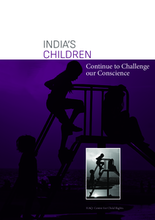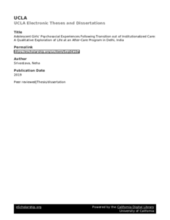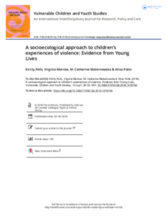childrens_living_arrangement
children_living_without_bio
Displaying 221 - 230 of 427
The licenses of 16 Child Care Institutions (CCI) in Jharkhand, India have been revoked "following a report submitted by the State Commission for Protection of Child Rights (SCPCR) with a recommendation to take action against 31 such shelter homes in the State," according to this article from the New Indian Express.
This Virtual Companion Tool Kit for child protection committees at the village (VCPCs) is a knowledge kit aimed at strengthening community-led child protection mechanisms.
This report, which is also the fifth in the series, reflects on how children and the realisation of their rights continue to challenge our conscience even today.
This dissertation study aimed to describe and understand adolescent girls’ subjective experiences of life in an after-care facility after transitioning out of institutionalized care in Delhi, India.
The study's objective was to determine what successful caregivers of orphaned and vulnerable children (OVC) in diverse countries do to sustain their positive mental health.
A cross-sectional comparative descriptive study was conducted among 300 children of age 6-12 years from a pediatric outpatient department of a selected hospital and 300 children from selected orphanages in Kolkata to compare the prevalence of behavioral disorders in children under parental care and out of parental care using Strengths and Difficulties Questionnaire (SDQ).
In this article, Newslaundry investigates six orphanages that were shut down in the Kashmir Valley owing to abuse or poor facilities.
The aim of this study was to examine associations between mindfulness and psychological factors (i.e., depression, cognitive function, positive emotion, and negative emotion) among adolescent orphans in children's care homes in India.
In this paper, the urgent need to strengthen the child protection system in India is presented in the context of the Integrated Child Protection Scheme and relevant juvenile justice legislation.
This paper highlights findings from a a 15-year longitudinal cohort study of children growing up in poverty in Ethiopia, India, Peru and Vietnam.




